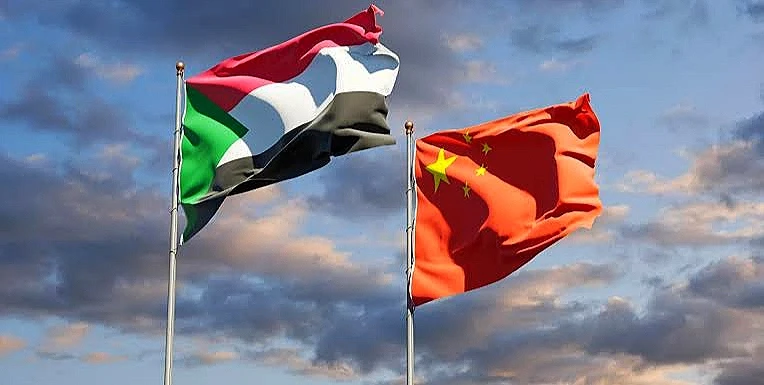Beijing’s loans to Sudan at risk as Chinese lenders hit by series of defaults across continent
The conflict in Sudan has dealt a fresh blow to China’s strategy of financial engagement with Africa, putting at further risk loans from Beijing worth at least $5bn. Sudan has been a significant recipient of Chinese financing on the African continent, where Beijing ranks as the largest bilateral lender, according to figures from the Aid Data lab at William and Mary college in the US.
The power struggle between two rival generals that erupted last month has brought war to the capital Khartoum and displaced hundreds of thousands of Sudanese people. It has also been a setback for China’s strategic goals in the Horn of Africa, where Beijing has sought to bolster its influence by funding infrastructure. Sudan’s outstanding debts to China stood at $5.12bn in early 2022, according to Sudanese central bank documents. But analysts said this did not include oil prepayment facilities, which are in effect loans from Chinese entities that are supposed to be repaid with shipments of oil.
The outstanding value of such loans for oil is unclear, but may add billions to the total debt stock. Hamid Suleiman, then-deputy minister of energy and mines, was quoted in news reports in 2020 as saying that Sudapet, the state-owned Sudanese oil group, owed an outstanding $2.5bn to Chinese state oil company CNPC. Chinese state-owned entities extended loans worth $15.5bn to Sudan in the decade to 2020, said Bradley Parks, executive director of Aid Data, which keeps a comprehensive database on China’s global lending. These entities lent $4.7bn to South Sudan, which split from Sudan in 2011, over the same period, Aid Data shows.
The Sudanese conflict has thrown off course an IMF-backed reform program and further jeopardized Khartoum’s ability to repay a host of creditors, including China, according to analysts. Sudan is already in arrears on much if of its external debts, including those to Chinese entities, IMF figures show. Overdue loan repayments and late fees to external creditors were worth more than 140 per cent of its gross domestic product, said Parks. Beijing’s debt tribulations in Sudan are repeated across much of Africa, where Chinese state-owned lenders are suffering a series of defaults. This represents a significant shift from the mood seven years ago, when China’s president, Xi Jinping, referred to Africa as “the fastest growing and most promising continent in the world”. Almost 80 per cent of total lending to Africa by Chinese state entities is to countries in financial distress, according to a recent paper published by the National Bureau of Economic Research. Zambia has already defaulted, while Angola, Ethiopia and Kenya — among the big African borrowers of Chinese money — are all struggling to honor external debt obligations.
Chinese creditors’ willingness to write off loans or stump up rescue credit remains largely untested. Beijing appointed a “special envoy” to the Horn of Africa region last year who has been working largely behind the scenes to advance peace and the idea of a “shared future” with China. But one Chinese government adviser, who spoke on condition of anonymity, said that in Sudan’s case big gestures were unlikely — at least for the foreseeable future. “Sudan is too complicated right now,” he said. IMF managing director Kristalina Georgieva told a recent roundtable in Nairobi: “The moment there’s a meaningful ceasefire [in Sudan] we will step forward to see what can be done on the side of financing.” The debt problems sweeping Africa have mainly been caused by the sharp rise in global interest rates that followed the coronavirus pandemic and Russia’s war in Ukraine. This, along with weak domestic currencies and a series of local factors, has nudged several countries towards default as they struggle to service their debt obligations. “The overall situation is likely to worsen over 2023 and limit the ability of many African nations to raise the necessary finance both to deliver broader social improvements for their populations and respond to climate change,” according to a recent Chatham House paper.
China appears to be cautious about any potential role as a peacemaker in Sudan, despite its financial involvement. “I think China will make positive statements for peace and try to help the process but we don’t know the parties concerned that well,” said the Chinese government adviser. “Other countries such as the Europeans know the main actors in the Sudan conflict a lot better.” However, Deborah Brautigam, director of the China Africa Research Initiative at Johns Hopkins University, pointed to China’s hectic “shuttle diplomacy” that helped keep the oil flowing following the split between South Sudan and Sudan in 2011. “Sudan is where Chinese diplomats first got involved in shuttle diplomacy and, at that time, they got grudging praise from their American counterparts,” she said. “I wouldn’t be surprised if they returned to try to help sort out these gnarly problems.
Source; The Financial Times Limited.

